Who are the top African women's basketball players of the decade?
ABIDJAN (Cote d'Ivoire) - It cannot be overstated how much women's basketball in Africa has grown over the past few years of what can only be described as a game-changing decade for the sport.
ABIDJAN (Cote d'Ivoire) - It cannot be overstated how much women's basketball in Africa has grown over the past few years of what can only be described as a game-changing decade for the sport across the continent.
To celebrate the top stars of the game, the FIBA Africa Editorial Team researched the history books and selected 12 players from eight countries, who were at the forefront of the women's basketball movement in Africa.
With wins over higher-ranked countries at the FIBA Women's Basketball World Cup 2018, Nigeria and Senegal signalled a bright future for Africa women's basketball.
#TBThursday
— FIBA Women's Afrobasket (@afrobasketwomen) September 3, 2020
The 🌍 queens of 🏀!
Your Africa All Star Five of the last competition, in 2019!
⭐ 🇲🇱 @Poupexe
⭐ 🇳🇬 @_the9jaqueen
⭐ 🇳🇬 @akhator
⭐ 🇸🇳 @AstouTraore1O
⭐ 🇲🇿 @DongueLeia pic.twitter.com/h4p6DP2Af9
The criteria for the nomination were based on national team contributions over the past decade, as well as participations in global and continental FIBA competitions during this time frame.
In no particular order, here's the Team of the Decade:
Leia Dongue, Mozambique
Imagine a player who has never averaged less than 13 points and seven rebounds per game for over 10 years at major global and Africa competitions. Fast forward to 2020, she is only 29, in great shape, making wakes with European clubs, and more importantly, she still has a lot basketball to play.
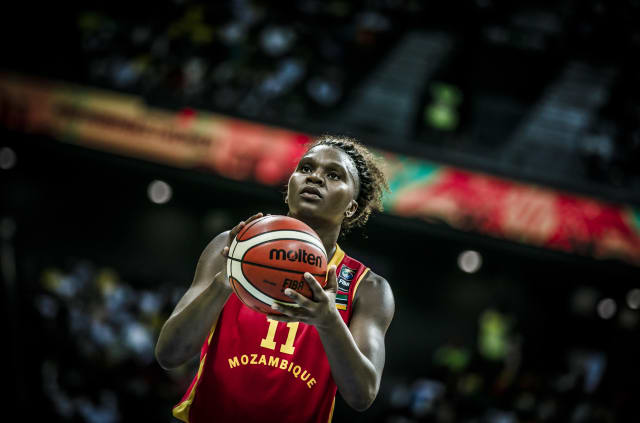 Leia Dongue (Mozambique)
Leia Dongue (Mozambique)
A household name across Africa and beyond, the Mozambican ace has been named to six FIBA Africa Champions Cup for Women (FIBA ACCW) All-Star teams from 2012 to 2017 while playing for Liga Desportiva and Primeiro D'Agosto.
Let's not forget that Dongue, who averaged 15 points and 11.7 rebounds at FIBA Women's Basketball World Cup in Turkey, claimed FIBA ACCW MVP honors twice in 2014 and 2015.
In the process, the 1.86m (6ft 1in) forward was named to the FIBA Women's AfroBasket All-Star team in 2013, 2017 and 2019.
Leading scorer at last year's African Championship, Dongue currently registers an average of 15.5 points and 8.45 rebounds per game in five editions of the FIBA Women's AfroBasket dating back to 2011.
Yet, Dongue's Mozambique are yet to win a FIBA Women's AfroBasket title.
Nacissela Mauricio, Angola
A tireless competitor who became the symbol of Angola women's basketball for most of the last ten years, 'Naci', as she is commonly known, helped her country to two consecutive FIBA Women's AfroBasket titles in 2011 and 2013.
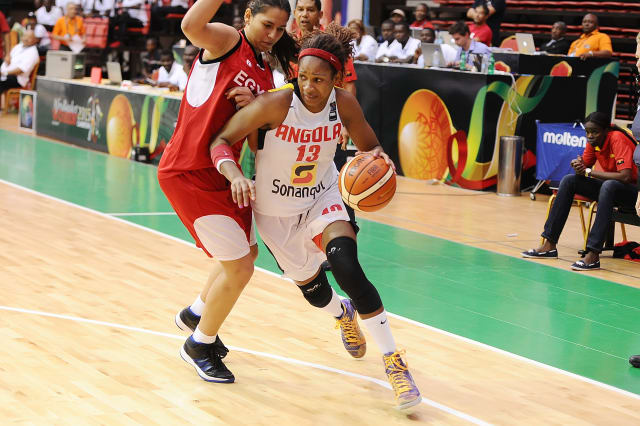 Nacissela Mauricio (Angola)
Nacissela Mauricio (Angola)
Perhaps the biggest moment of her career came when the 1.84m (6ft 1in) forward became the only African player to win back-to-back AfroBasket MVP honors from 2010 to 2020.
'Naci' retired two years ago following recurring knee injuries. She currently works as basketball director for Angolan side Primeiro D'Agosto.
Astou Traore, Senegal
A terrific shooter like no other, Traore's career over the last decade was marked by her resilience in helping Senegal to the highest podium step in Africa.
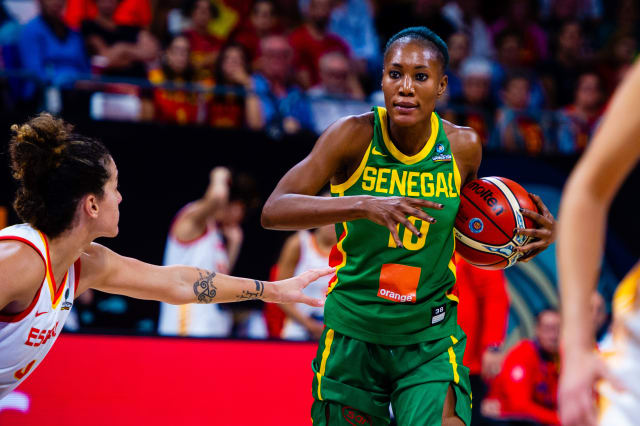 Astou Traore (Senegal)
Astou Traore (Senegal)
And although the Senegalese have won only one continental title (2015) and finished second on three occasions (2011, 2017 and 2019), Traore played her part being named MVP of the FIBA Women's AfroBasket three years ago in Bamako, Mali.
Traore, who has featured at two editions of the FIBA Women's Basketball World Cup (2010 and 2018) and starred at 2016 Rio Olympics, recorded an average of 12.9 points per game across the three competitions.
Ezinne Kalu, Nigeria
Little was known when Kalu made her debut with the Nigerian team that almost caused damages at the FIBA Women's Olympic Qualifying Tournament 2016 in Nantes, France.
While she arrived in Nantes as a relatively unknown player, she returned home as a genuine future leader.
Nigeria fell short of advancing to the Rio Olympics despite Kalu's memorable three-pointer in dying seconds of the Quarter-Finals clash against Korea, but it was a matter of time as she would play a huge role in helping her country win their first FIBA Women's AfroBasket in a decade the following year.
Four years on since her debut with the D'Tigresses, and Kalu helped Nigeria to two African titles.
MVP of the African Championship last year, the shooting guard has entered the history books as a member of the first African country to reach the Second Round of the FIBA Women's Basketball World Cup.
Meiya Tirera, Mali
Solid defender and efficient scorer, the 2008 Beijing Olympian Tirera did everything in her power to help Mali to the crown of Africa, but what she achieved was three Third-Place finishes at FIBA Women's AfroBasket.
Yet, her more than ten years with the national team have proven vital for her country's new generation of hoopers.
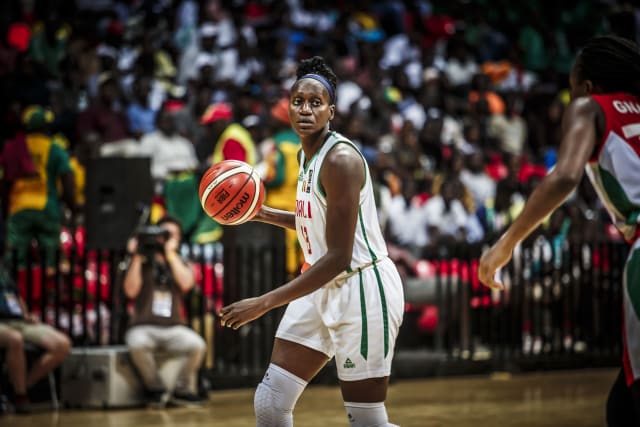 Meiya Tirera (Mali)
Meiya Tirera (Mali)
She might have played her last AfroBasket last year in Senegal, although she has represented Mali at the FIBA Women's Olympic Qualifying Tournament 2020 Pre-Qualifiers early this year.
Tirera helped not only InterClube de Luanda to the FIBA ACCW 2013 title, but she also made the All-Star team such was her impact in the tournament held in Meknes, Morocco.
Ramses Lonlack, Cameroon
Memphis University fans named her as the 'African Queen', and when Cameroon hosted the FIBA Women's AfroBasket 2015, she transformed into a Cameroonian Goddess.
Cameroon had last reached the top three places of the African Championship in 1984, but with Lonlack on the court, Cameroon who put on a show as hosts, had plenty of reasons to dream about a place in the Rio Olympics the following year.
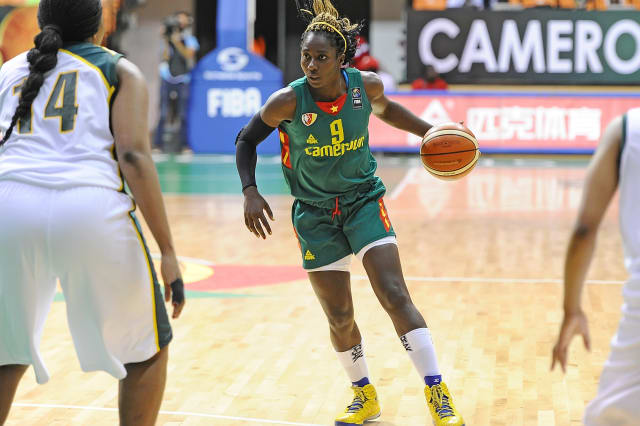 Ramses Lonlack (Cameroon)
Ramses Lonlack (Cameroon)
Named to the All-Tournament team, Lonlack led undefeated Cameroon all the way to the Final until they crashed out against eventual winners Senegal.
While the Cameroon 2015 showdown was Lonlack's best showing with the Lionesses Indomitable jersey, two years earlier in Mozambique, the then 24-year-old guard deserved all credit to be named to the All-Star team after guiding her country to the Fourth-Place finish.
Mame Marie Sy, Senegal
Sy is the type of player that coaches love having on their teams. Tireless, aggressive at both ends of the floor, she reflected Senegal's tenacity over the last ten years.
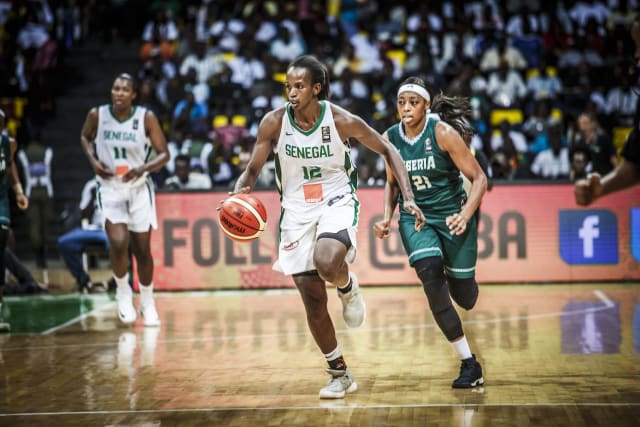 Mame Marie Sy (Senegal)
Mame Marie Sy (Senegal)
The 1.90m (6ft 3in) power forward has won two African titles with Senegal, and hasn't missed a single international competition while playing professionally in France. She has featured at six African Championships dating back to 2009.
Soraia Deghady, Egypt
The clock ticked really fast for Deghady.
And if the FIBA U16 Africa Women's Championship 2011 was her introduction to the international audience, the following year she materialised her dream of becoming a star player as she sparked Egypt to the third-place of FIBA U18 Africa Women's Championship held in Dakar, Senegal.
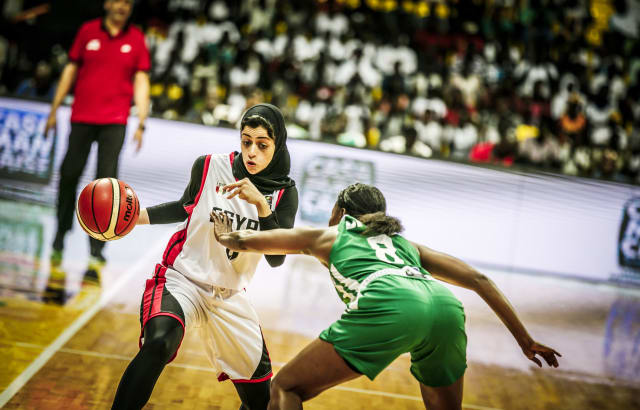 Soraia Deghady (Egypt)
Soraia Deghady (Egypt)
What happened next is history: As one of the best talents in African basketball scene, Deghady has been crucial for the popularity of Egypt women's basketball. Be it at 3x3 or five-a-side basketball, she is easily recognized for her trademark no-look passes and three-point prowess.
Geraldine Robert, Gabon
When five years ago France-based Robert returned home for her first major appearance with the Gabonese national team, she made history.
Robert not only helped her country qualify for the African Championship for the first time since 2005, but her 23 points and 14 rebounds proved vital as Gabon advanced to Final Round of the FIBA Women's AfroBasket 2015 in Cameroon.
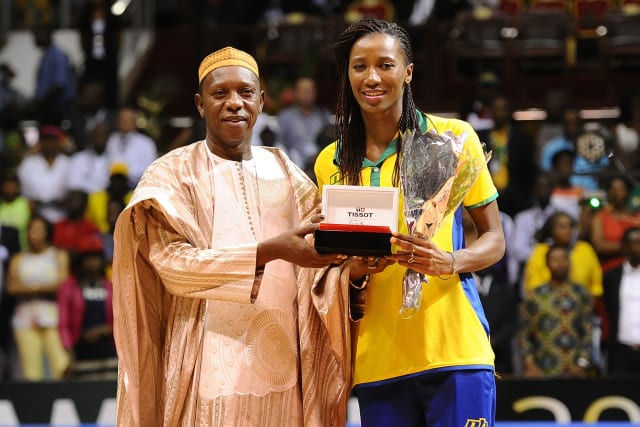 Geraldine Robert (Gabon)
Geraldine Robert (Gabon)
The Gabonese finished top of the qualifier ahead of Cameroon and the Democratic Republic of Congo thanks to their 3-1 record.
Once in Yaounde, Robert showed off her talent, only to be named to the All-Star team of the FIBA Women's AfroBasket 2015.
Italee Lucas, Angola
Lucas may have not been able to help Angola to a podium finish ever since she made her national team debut in 2017, but her success with InterClube is undeniable.
Named FIBA ACCW 2013 Most Valuable Player, Lucas, who has won three FIBA ACCW titles, has become Angola's most important player in recent years.
Evelyn Akhator, Nigeria
Arguably one of the reasons, the Nigerians have won back-to-back African titles (2017 and 2019).
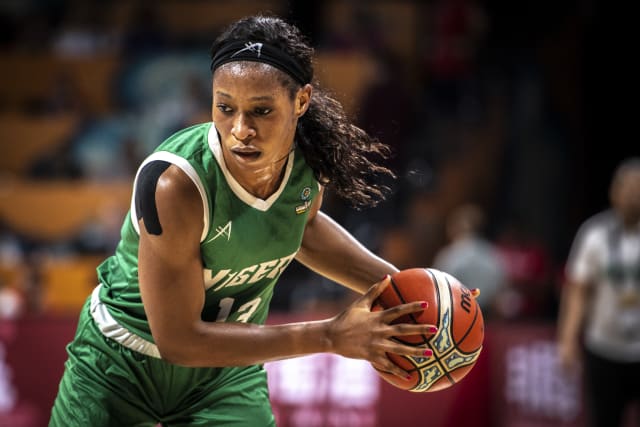 Evelyn Akhator (Nigeria)
Evelyn Akhator (Nigeria)
In two FIBA Women's AfroBasket appearances, the former University of Kentucky standout was named to two All-Star teams. It says how fundamental Akhator has been for Nigeria.
Naignouma Coulibaly, Mali
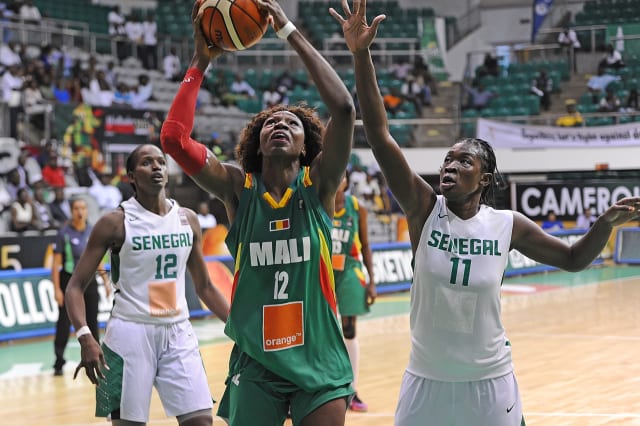 Naignouma Coulibaly (Mali)
Naignouma Coulibaly (Mali)
A top rebounder and intimidating defender, the 1.91m (6ft 3in) center has been so influential for Mali that registers two FIBA Women's AfroBasket All-Star nominations (2013 and 2017).
FIBA